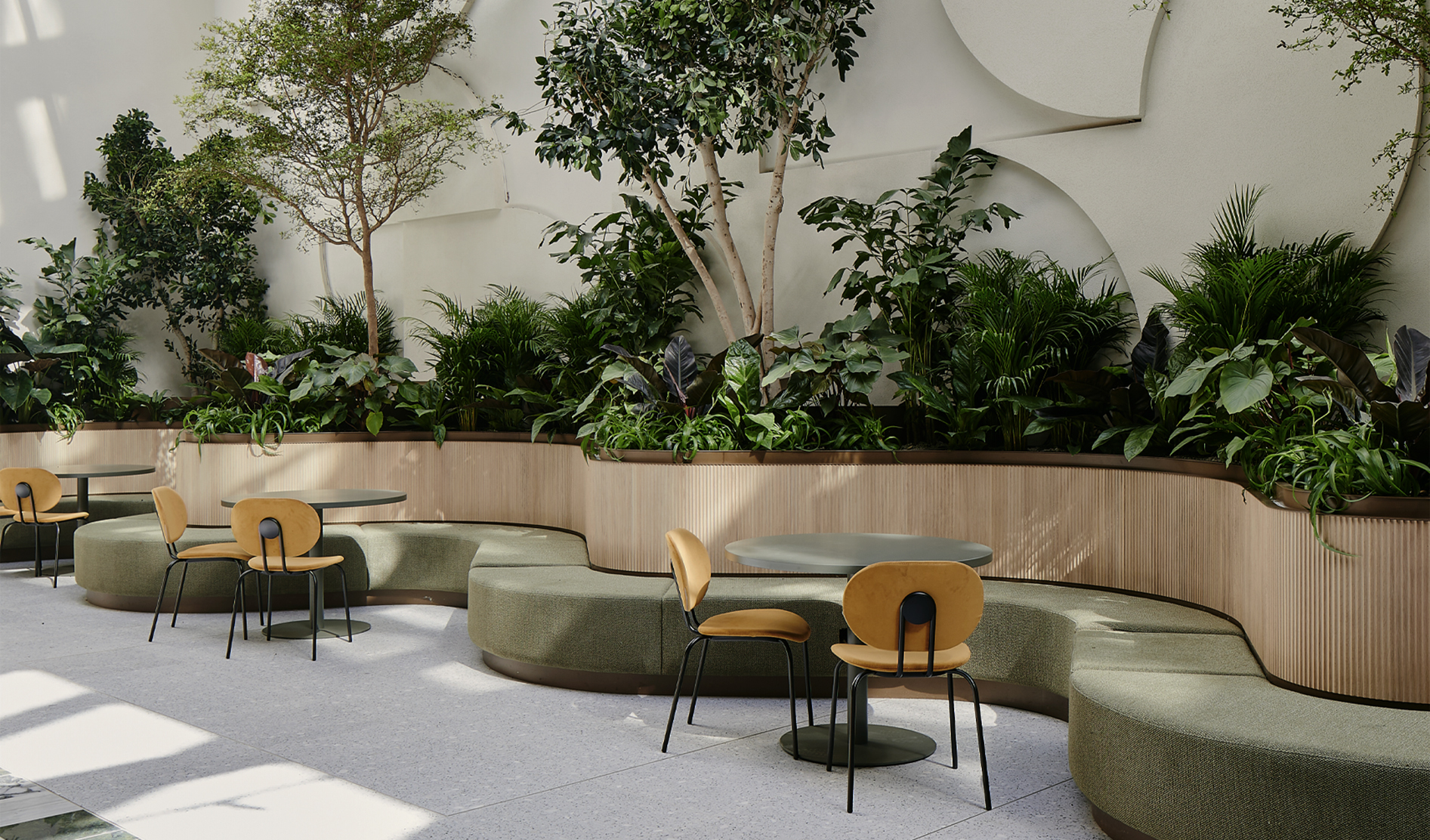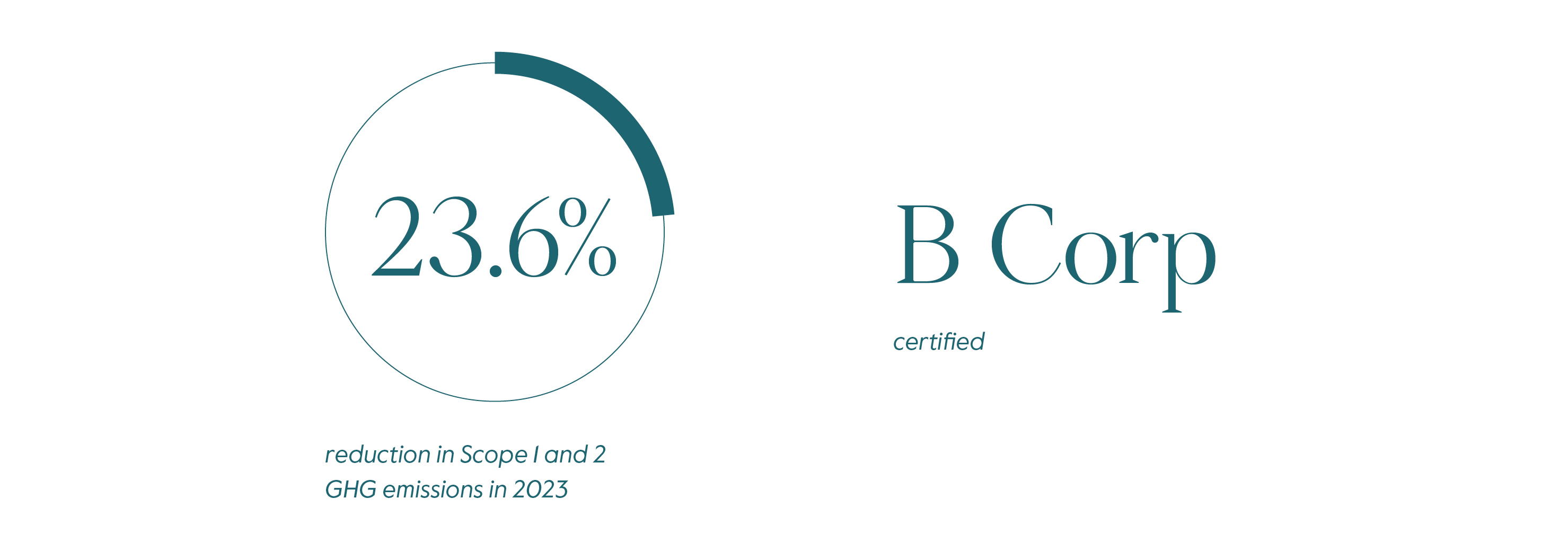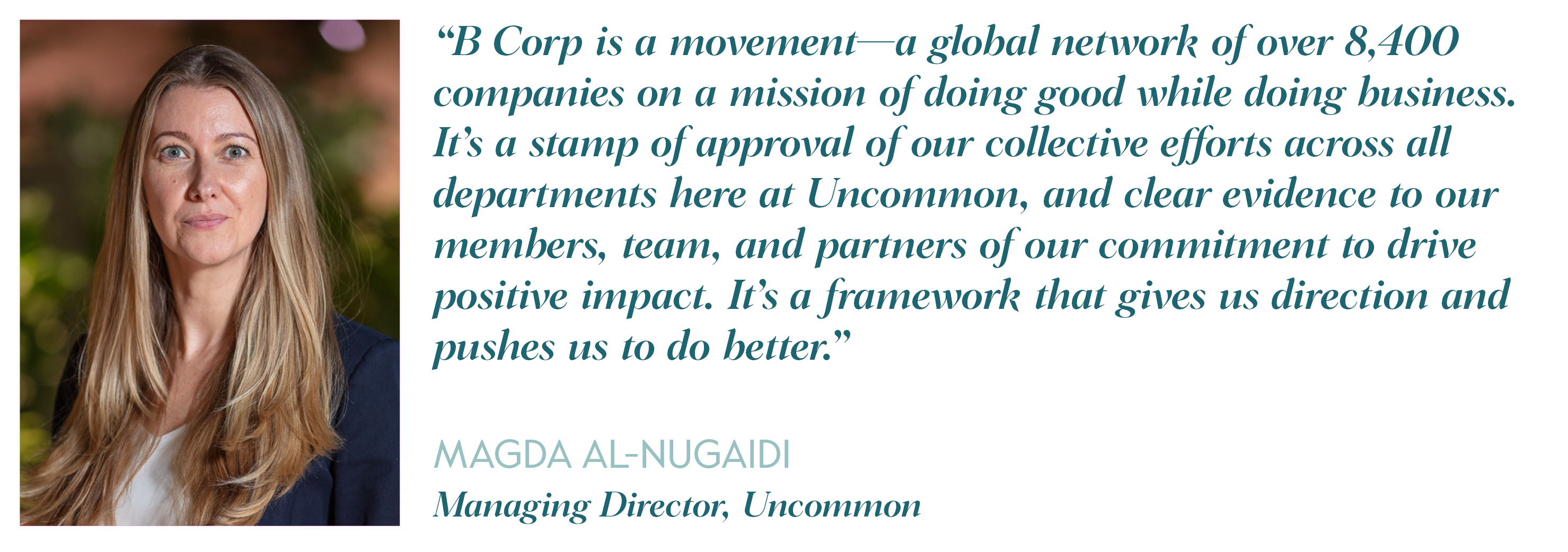
Sustainable Growth
Uncommon

Answering the Demand for More Sustainable Workspaces
In 2017, Carlyle entered the London flexible workspace environment— looking for a company that understood the increasing demand for well-designed spaces that also focused on sustainability. We believed the demand for these characteristics was coming from established organizations, start-ups, and even sole traders.
We found a company making that link in London, with an imaginative and ambitious workspace in a former book bindery. We committed to invest £150 million in what was to become the Uncommon brand. The funds, released in stages, enabled the business to rapidly quadruple its footprint, adding three new major spaces to its existing hub, and increasing the total number of desks to 2,152 by 2019. The company then acquired a building in Holborn—the largest addition to the Uncommon portfolio, with an additional 1,900 desks opening in Summer 2024.
Six years after investment, the demand for commercial real estate with a strong sustainability profile is proving resilient.1 Uncommon CEO Chris Davies approached the Carlyle Sustainability team over three years ago with his vision to make sustainability the cornerstone of the brand, and one day reach Net Zero across all construction and operations of the business. Carlyle has supported the company on this journey, not only to develop a sustainability strategy, but also by serving on the Uncommon Board and as part of their Environmental Committee actively working on the implementation of environmental initiatives.
Uncommon’s strategy includes goals to reduce emissions in line with the Paris agreement, incorporate green building standards, and embed environmental considerations in choosing suppliers, including their food and beverage offering.
Sustainability as a Tool to Engage Members and Drive Occupancy
From the company’s inception, we believed that sustainability was not just a ‘nice to have’ for Uncommon but could form a core pillar of its brand differentiation and recognition, and support engagement strategy with its members, which ultimately contributes to stable occupancy rates, a key commercial metric.
External accreditations and recognizable industry verifications were important as part of this strategy. A key milestone for the company was its B Corp certification achieved in 2023. B Corp is no small feat, and it took countless hours for the full team to work toward the stringent criteria.
Since becoming certified, Uncommon has hosted regular events for its members, featuring talks from sustainability experts and panel discussions with fellow B Corp brands. They’ve also actively supported member companies in joining the movement to become B Corp themselves.
The team also decided to get ratification for its climate program through the Science Based Targets initiative (SBTi). The Uncommon team defined a detailed and SBTi-backed Net Zero strategy in 2023 with a near-term target of an 80% reduction by 2025. Key to the SBTi-approved roadmap is the role that Uncommon occupiers, called ‘Members,’ can play in how they use the spaces. Once joined, all Members participate in an ESG onboarding that outlines the environmental and ethical performance and principles of the company, and outlines opportunities to participate in environmental responsibility. In this way, the business uses its sustainability program as a Member engagement and activation strategy, which the business hopes in turn improves loyalty and retention—a key business metric to ensure occupancy.
From Vision to Reality
With a development model that seeks to improve existing buildings, the company implements a comprehensive approach to the physical impacts of the build, fit-out and use phases. During construction, the project team seeks to prioritize recyclable and lower-impact materials. When it comes to the design of its spaces—from air-conditioning systems, to lighting, to furniture—efficiency is a focus.
To increase energy efficiency, Uncommon strives to include high-performance insulation, efficient heating, ventilation, and air conditioning systems across its sites, and solely sources electricity from renewable energy providers. For water consumption reductions, the Highbury, Borough, and Fulham buildings use technologies such as low-flow faucets, tap sensors, dual-flush toilets, and rainwater harvesting. Recycling is encouraged and enabled throughout the sites with clearly labeled facilities for both Members and Uncommon staff and service providers. Uncommon’s sites meet BREEAM’s2 ‘Good’ to ‘Excellent’ standards for sustainable performance,3 and the team is seeking an ‘Excellent’ rating for Holborn.

Information as of May 2024, unless otherwise noted. Data shown has been provided directly by the portfolio company and has not been independently verified. There is no guarantee that the portfolio company will successfully implement its business plan or meet stated commercial or ESG targets. There can be no assurance that any trends described herein will continue. Past performance is not indicative of future results. Goals are subject to change and no assurance can be given that goals or targets will be achieved. Case studies are provided for illustrative purposes only. Carlyle’s track record is available upon request.
3 As of May 2024.
